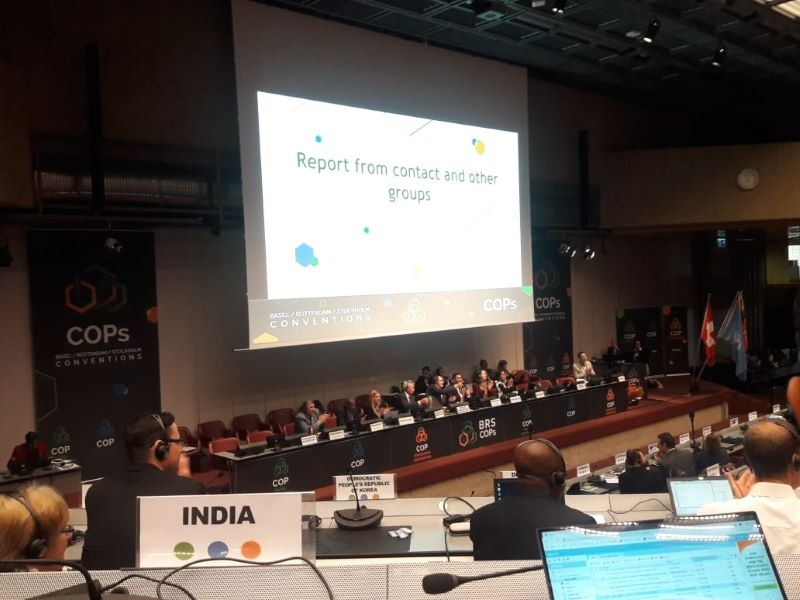India Takes Firm Stand Against Plastic and E-waste Dumping into Developing Countries
Geneva, May 17: Fourteenth meeting of the Conference of the Parties to Basel Convention (COP 14) was held in Geneva between April 29 to May 10 in which the Indian delegations took firm stand against the plastic and e-waste dumping by developed countries. The theme of the meetings this year was “Clean Planet, Healthy People: Sound Management of Chemicals and Waste.’’

It was the joint meeting of COP to ‘Basel Convention on the control of Transboundary Movement of Hazardous Wastes and their Disposal’, ‘Rotterdam Convention on the Prior Informed Consent Procedure for Certain Hazardous Chemicals and Pesticides in International Trade’ and ‘Stockholm Convention on Persistent Organic Pollutants’.
An Indian delegation of Ministry of Environment, Forest and Climate Change along with other ministries such as Agriculture, Chemicals, and Electronics and Information Technology participated in the meeting.
The main stand of Indian delegation was against the practice of dumping of plastic and e-waste in developing countries by developed countries. The draft technical guidelines in the Basel Convention stipulated the condition when used electrical and electronic equipment destined for direct reuse, repair, refurbishment, or failure analysis should be considered as non-waste. However, India took strong objections on these provisions as in the name of reuse, repair, refurbishment or failure analysis there was a possibility of dumping from the developed world to the developing countries including India in view of growing consumption of electronic equipment and waste across the world. The Indian Delegation strongly opposed the proposed decision on these guidelines during plenary and didn’t allow it to be passed by the COP.
India’s concerns were supported by a large number of developing countries. On the final day of the COP, a mofidied decision was adopted in which all the concerns raised by India were incorporated.
Another major achievement of COP 14 was the decision to amend the convention to include unsorted, mixed and contaminated plastic waste under PIC (Prior Informed Consent) and procedure and improve the regulation of its transboundary movement. This was indeed a significant step towards addressing pollution.
Basel Convention has also adopted partnership on plastic and it was welcomed by the Indian delegation. The steps will help prevent the illegal dumping of plastic waste in developing countries.
India has already imposed a complete prohibition of import of solid plastic waste into the country. India has also made an international commitment to phase-out single-use plastic.
Two new chemicals (Phorate and HBCD) were added in the list of mandatory PIC procedure in international trade under Rotterdam Convention COP. Under Stockholm Convention, the COP decided to list ‘Dicofol’ in Annex A without any exemption. The 'PFOA' was also listed with some exceptions in the Annex A.